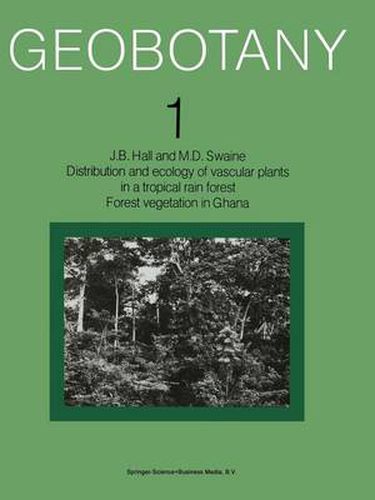Readings Newsletter
Become a Readings Member to make your shopping experience even easier.
Sign in or sign up for free!
You’re not far away from qualifying for FREE standard shipping within Australia
You’ve qualified for FREE standard shipping within Australia
The cart is loading…






This title is printed to order. This book may have been self-published. If so, we cannot guarantee the quality of the content. In the main most books will have gone through the editing process however some may not. We therefore suggest that you be aware of this before ordering this book. If in doubt check either the author or publisher’s details as we are unable to accept any returns unless they are faulty. Please contact us if you have any questions.
It is a privilege to be asked and a pleasurable duty for me to write the foreword of this book. The conservation and wise utilisation of the humid tropical forests, a unique biome, are matters of great concern and importance to millions living within and around these forests and, perhaps, less directly, to the totality of mankind. These forests provide many essential products and services for mankind. The list is lengthy and need not be repeated here. Suffice it to say that there are not many aspects of human activity which do not utilise some of these products, services or derivatives therefrom. Yet it is the view of those most closely associated with the study of these forests that what is known is but a minuscule portion of whatthere is to know. The products and services now utilised, are perhaps some infinitesimal part of the full potential. All over the tropical world, however, these forests are being destroyed. At first, slowly, but now surely gathering tempo. This is true also of Ghana. Tracts offorest land are converted to other uses, often ephemeral and not sustained. Irreversible changes take place in our environment. The gains are shortlived, the losses unobtrusively accumulate and stay forever. The accelerating rate of deforestation, in the face of our relatively scanty knowledge of this biome, is indeed a sad reflection of the state of human affairs. It is in this setting that one welcomes this book by Messrs. J. B. Hall and M. D. Swaine.
$9.00 standard shipping within Australia
FREE standard shipping within Australia for orders over $100.00
Express & International shipping calculated at checkout
This title is printed to order. This book may have been self-published. If so, we cannot guarantee the quality of the content. In the main most books will have gone through the editing process however some may not. We therefore suggest that you be aware of this before ordering this book. If in doubt check either the author or publisher’s details as we are unable to accept any returns unless they are faulty. Please contact us if you have any questions.
It is a privilege to be asked and a pleasurable duty for me to write the foreword of this book. The conservation and wise utilisation of the humid tropical forests, a unique biome, are matters of great concern and importance to millions living within and around these forests and, perhaps, less directly, to the totality of mankind. These forests provide many essential products and services for mankind. The list is lengthy and need not be repeated here. Suffice it to say that there are not many aspects of human activity which do not utilise some of these products, services or derivatives therefrom. Yet it is the view of those most closely associated with the study of these forests that what is known is but a minuscule portion of whatthere is to know. The products and services now utilised, are perhaps some infinitesimal part of the full potential. All over the tropical world, however, these forests are being destroyed. At first, slowly, but now surely gathering tempo. This is true also of Ghana. Tracts offorest land are converted to other uses, often ephemeral and not sustained. Irreversible changes take place in our environment. The gains are shortlived, the losses unobtrusively accumulate and stay forever. The accelerating rate of deforestation, in the face of our relatively scanty knowledge of this biome, is indeed a sad reflection of the state of human affairs. It is in this setting that one welcomes this book by Messrs. J. B. Hall and M. D. Swaine.